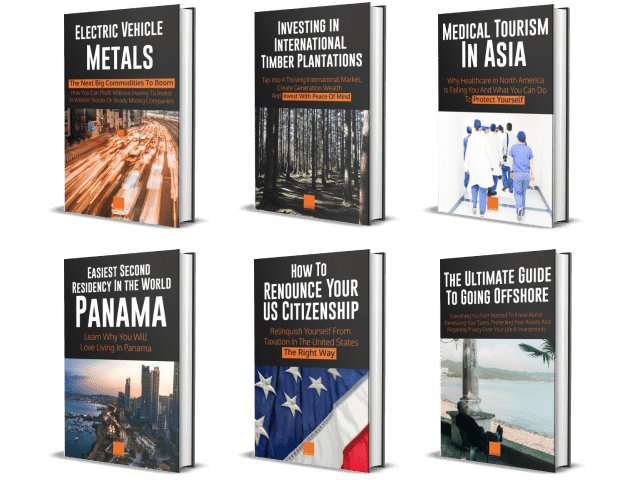The travel restrictions from the Coronavirus and the general apprehension of the disease has impacted tourism more than any other economic sector. A sector that used to generate 10.4% of the entire world’s global GDP is expected to lose as much as $24 billion by the time that we come through to the other side. It’s not just the fact that people aren’t traveling out of a personal choice, governance systems around the world are also beginning to crumble under the strain of the epidemic with many resources being diverted to healthcare systems. In this process, other administrative operations—like border control and foreign travel controls—are beginning to show the strain too.
At this moment, an estimated 50,000 US nationals are stuck in foreign countries because they’re not allowed to leave the countries they’re currently in. Similarly, people from around the world are stuck in airports—often turned back abruptly from countries that granted them travel visas. These events are indicative of an abrupt policy change signifying how the central administrative system is collapsing or at least cracking under this pressure.
While it’s worth noting that the inability to clamp down on the epidemic is symptomatic of the failure of governance systems around the world, we need to think of how we’ll make it out alive. If you’re one of the unfortunate people whose lives have been disrupted because of the epidemic and the resulting travel restrictions, there’s still hope—but you should also reflect.
The Damages Inflicted by the Coronavirus
Barring the effects of the Coronavirus on the existing global superstructure that encompasses the economy, politics, and finances—there’s a stream of effects out of the many that emanate from these larger dynamics that will touch you too. Some of those stuck in these airports or in foreign lands are beginning to feel these effects—albeit in a more direct way than you, but you’re also under attack whether you realize it or not. To bring this idea home, let’s start by tracing out how each overarching impact in the larger dynamics of the world affect you individually.
The Impact on the Individual from the Economic Damages
While the US stock market seemingly broke out of the bearish market into a 3-day bullish hike, these effects have been short-lived in. Now as the government introduces a $2 trillion fiscal stimulus bill in response to the massive unemployment throughout the country, it’s only inevitable that inflation rates will skyrocket. The real values of your financial assets will drop—possibly significantly—and your earnings will very well take a serious debt.
Similar possibilities arise in stock investments around the world if you have money tied up there too. With the historically largest concerted quantitative easing policy trends being observed around the world, global inflation will spike very soon. Your stocks are already losing money—unless you’re invested in pharmaceuticals, but you’re probably one of the very few people with holdings concentrated in that sector.
You need to start looking at other investment options and diversifying your holdings. This includes investing in gold to cushion your losses from these stocks and spreading your risk. Gold markets are thriving right now as more people move into the market—it’s also ideal that you get rid of some of your stock holdings to buy up blue-chip stocks when markets rebound. It would be worthwhile to also mention that you need to move to an offshore SDIRA, if that’s possible for you, because you can’t work with the US investments market if you’re trying to sustain your wealth.
The Protection from Legal Exploitation
One of the biggest concerns from the epidemic is the number of people who’re stuck in airports, hotels or in the US even though they live full-time in other countries. I’ve already spoken about the number of Europeans, Americans, and Latin Americans unable to return to their countries or businesses because they’re not technically permanent residents. A lot of these people thought that they don’t need to apply for residency—but the fact of the matter is that their financial and employment futures are in limbo right now.
As a resident in a country, you’re guaranteed certain legal protections against the policy measures taken by host countries. There are plenty of examples right now like France, the UK, Germany and the US evacuating their people back home. Anyone who didn’t apply for residency or citizenship will miss out on this opportunity since the government doesn’t owe them a responsibility anymore—they’re not recognized as the country’s responsibility.
So now there are people who’re stuck in a sort of purgatory in their airports or hotels, overextending their stays on travel visas wondering what will become of them. There’s too much uncertainty in this time and they’re up against a force that they can’t possibly overcome on their own. They need residency and citizenship to ask their governments to ensure their rights.
In the process of applying for residency or citizenship, they’d have to buy the property and establish bank accounts in these countries. With these assets, they’d have places to stay, financial resources to tap into, and other amenities due to them as citizens of these countries. As they delayed on applying for citizenship, the epidemic snuck up on them and the governments surrendered them to whatever fate has in store for them.
Wising Up and Thinking of Plan-B
Everything I’ve said up till this point is only the tip of the iceberg, we don’t know how bad it’ll get overtime. Is this epidemic is still in its infancy or will it get even worse as time passes? In such a time, it’s only timely and shrewd strategies that take into account your finances and escape routes to help you survive.
I’ve said this in the past and I’ll say this now too—you can’t rely on the government to take care of you. You’re the only ones who can protect yourself and if you haven’t taken the appropriate measures just yet—you better start doing this as soon as you read this because who knows how much time we have in our hands.
I hope you got value from reading: What the Covid-19 Epidemic Teaches about the Need for a Plan-B. To start Plan-B today, contact our legal department NOW, or you would like more information on GOLD, please contact our office HERE, you will be happy you did. Here are a few additional articles on Covid-19.
Top 16 Reasons to Move To Panama
9 Reasons Why Millennials Are Choosing to Become Expats
What Does the Coronavirus Epidemic Tell Us About the Failures of Modern Government?
Increased Surveillance of Individuals During COVID-19—Necessary Precaution? Or The Groundwork of an…
About The Author
 Mikkel Thorup is the host of The Expat Money Show podcast and Director of Content at Escape Artist. He is also the author of #1 Best-Selling book Expat Secrets on Amazon. He has spent nearly 20 years in continual travel around the world, visiting more than 100 countries including Colombia, North Korea, Zimbabwe, and Iran. His goal is to help people just like you to generate additional streams of income, eliminate your tax bill, and take advantage of offshore structures so you can travel the world freely and never have to worry about money again. For more information on his legal (but creative) tax strategies for Expats watch this free video.
Mikkel Thorup is the host of The Expat Money Show podcast and Director of Content at Escape Artist. He is also the author of #1 Best-Selling book Expat Secrets on Amazon. He has spent nearly 20 years in continual travel around the world, visiting more than 100 countries including Colombia, North Korea, Zimbabwe, and Iran. His goal is to help people just like you to generate additional streams of income, eliminate your tax bill, and take advantage of offshore structures so you can travel the world freely and never have to worry about money again. For more information on his legal (but creative) tax strategies for Expats watch this free video.
Like Our Articles?
Then make sure to check out our Bookstore… we have titles packed full of premium offshore intel. Instant Download – Print off for your private library before the government demands we take these down!


Source: https://www.escapeartist.com/blog/what-the-covid-19-epidemic-teaches-about-the-need-for-a-plan-b/?utm_source=rss&utm_medium=rss&utm_campaign=what-the-covid-19-epidemic-teaches-about-the-need-for-a-plan-b




